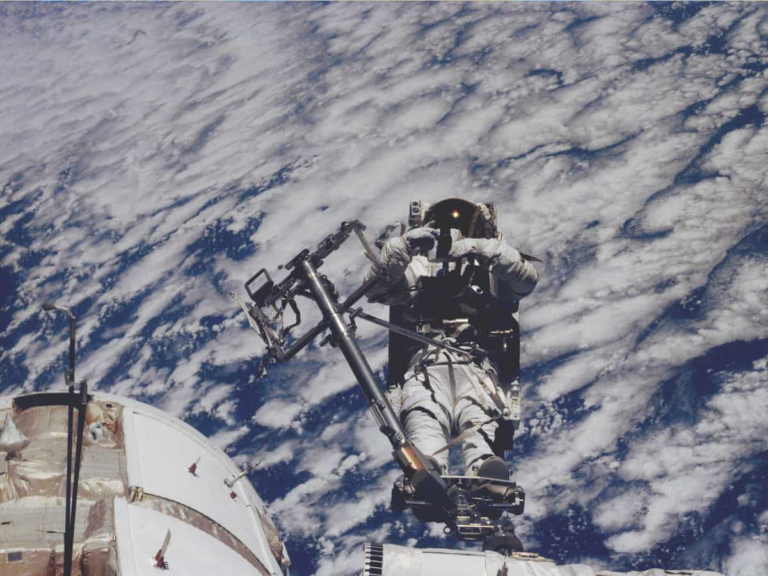
[ad_1]
Humans have been fascinated by space for as long as we know. We have sent spacecraft to probe asteroids, rovers to Mars, missions and even men to the Moon. With the Artemis III mission, scientists are trying to once again send people to our lunar satellite, the first since Apollo 17 in 1972.
Several astronauts already reside on the International Space Station. They grow vegetables there and conduct several scientific experiments. However, now that man is trying to explore space further, and even conquer Mars, one question which arises and remains unanswered is whether humans can have sex and get pregnant in space.
trending now
Newsweek talked to some experts regarding the matter and here is what they had to say.
Sex and pregnancy in space might not be feasible
As we are already aware space has microgravity, which makes it difficult for objects or humans to stay in one place, ruling out the logistical possibility of having sex in space. However, no scientific evidence or experiment is available to say this with surety.
“No one has had sex in space, or at least admitted having sex in space,” Adam Watkins, an associate professor in reproductive and developmental physiology at the University of Nottingham, told Newsweek.
“As such, it’s hard to know exactly how easy it will be to have sex in space. Obviously, the International Space Station is quite a cramped space so it may not be that easy to find a quiet corner in which to have sex. Also, astronauts are very busy people when on the International Space Station, and so finding free time to have sex might also be quite a challenge.”
Other than difficulty in staying still, sex in space may come with another issue- bodily fluids. Wherever there is microgravity, there are liquids that coalesce into spherical clumps, which are prone to flying all over the place unless quickly sopped up.
“Devices, including masturbation aids equipped with fluid suction apparatus, could be used to manage the effects of weightlessness on ejaculate, secretions, and lubricant,” Maria Santaguida, a research fellow at the Astrosexological Research Institute, told Newsweek. But until now, such devices have not been made for space.
It all depends on the technological innovations that could make sex in space not only plausible but also safe, practical and most importantly pleasurable, said Maria.
Another thing is space pregnancy. The microgravity present in space will not just make pregnancy difficult in space but may also lead to defects in the development of the foetus.
“With regard to getting pregnant in space, the simple answer is no one really knows,” Watkins said.
In this case as well, advanced technologies can overcome the limitations of microgravity. Watkins suggests that simply using centrifugal devices can overcome the lack of gravity, as gravity plays a crucial role in shaping the development of the womb.
Additionally, in a scenario where humans are travelling to Mars or another planet or moon, we could send freeze-dried sperm, eggs and embryos instead of an already pregnant woman, Watkins suggests.
Extended time in space ‘could cause erectile dysfunction’
One more reason that having sex and pregnancy in space is difficult is erectile dysfunction in males. An earlier study suggests that male astronauts returning from their space-faring mission have to deal with erectile dysfunction problems.
Among the reasons cited by the study is that astronauts while in space are exposed to high levels of galactic cosmic rays (GCR)—energetic particles that bombard Earth—as well as weightlessness, which in turn affects their sexual health.
According to a study published in The FASEB Journal, the risk of erectile dysfunction is not only present when astronauts are in space, but it might also continue for a long period even after they come back to Earth.
(With inputs from agencies)
[ad_2]
)
)
)
)
)
)
)
)
)
)
)
)
)
)
)